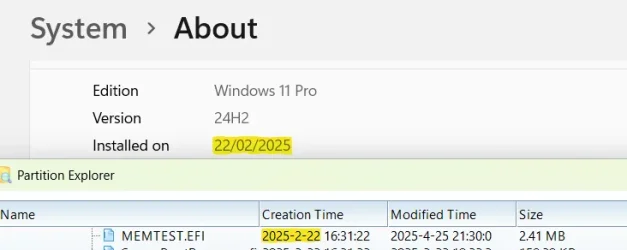misterq
New member
- Local time
- 8:07 PM
- Posts
- 1
- OS
- Windows 11
Hi. I have encountered such a strange problem that I noticed something modifies the files (memtest.efi, SecureBootRecovery.efi,kdnet_uart16550.dll, bootmgr.efi etc) in the EFI folder. The date of file modification appears. The HASH checksums also change. The signatures seem to be normal, they indicate the new signature date. I have not found any information about this in Windows updates. I understand that it is impossible to trace what makes changes in these files somehow programmatically. Of course, maybe someone has more information about updates. Please share the information.
(Windows 11 Enterprise LTSC Evaluation 24h2, image from MS site)
(Windows 11 Enterprise LTSC Evaluation 24h2, image from MS site)
My Computer
System One
-
- OS
- Windows 11
- Computer type
- PC/Desktop








